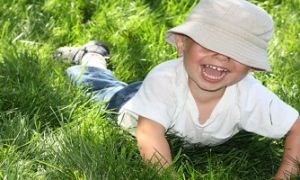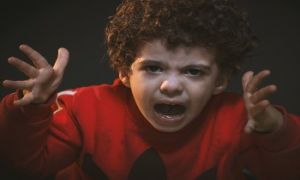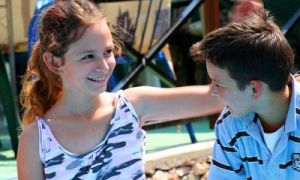

Over the past decade, many educators have observed a troubling trend: biting, pushing, and other aggressive behaviours among toddlers are increasingly normalized as developmental inevitabilities. While it’s true that young children often lack the verbal tools to express frustration or overwhelm, the sector’s growing tolerance for these behaviours—without deeper investigation or family collaboration—raises serious concerns about safety, equity, and emotional wellbeing.
In early childhood settings, educators often face a subtle but powerful choice: should learning focus on the process or the product? While both approaches have their place, understanding the distinction can transform how we nurture creativity, independence, and critical thinking in young children.
A: It depends on children's engagement and developmental needs. Many educators recommend keeping setups for 2–4 weeks, or even up to 6 weeks, especially if children are still exploring and learning from them. The key is to observe whether the setup continues to spark interest and growth.
As early childhood education centres periodically review their guiding philosophies, many educators are seeking innovative ways to make the process more inclusive, reflective, and engaging for staff, families, and the broader community.
Music is a universal language—and in Aboriginal and Torres Strait Islander cultures, it’s also a powerful vessel for storytelling, ceremony, and connection. Introducing Aboriginal music into early learning environments not only enriches children’s understanding of Australia’s First Nations peoples but also fosters respect, curiosity, and cultural awareness from a young age.
These critical reflection questions invite educators to look beneath the surface. To interrogate not just what ratios are, but what they do. How they impact our ability to see every child, respond to every need, and show up as our full selves. It challenges us to name the invisible labor, the moral compromises, and the quiet grief that ratio pressures can bring—while also illuminating the courage, creativity, and collective wisdom that educators embody every day.
In early childhood education, trust and collaboration are foundational—not just for children, but for the adults who guide them. Yet across the sector, many educators report that unprofessional gossip among staff continues to undermine workplace culture, erode morale, and fracture team cohesion.
In early childhood education, care is our currency. We pour it into children, families, documentation, and compliance—but how often do we pause to ask, “R U OK?” to the person beside us? R U OK? Day isn’t just a date on the calendar—it’s a culture we cultivate. It’s a reminder that behind every ratio, roster, and regulation is a human heart doing its best. And sometimes, that heart needs to be asked, gently and genuinely, “How are you, really?”
In early childhood education and care, child safety is not just a number—it’s a practice. While educator-to-child ratios are essential, they are only one part of a broader obligation: ensuring adequate supervision at all times. Together, these two pillars—Regulation 122 and Section 165—form the foundation of safe, responsive, and compliant care.
In the NSW and VIC early childhood sector, safeguarding children and ensuring accountability in service operations are paramount. But what happens when a complaint—particularly one involving alleged harm to a child—is investigated by the Department of Education and deemed “inconclusive,” with no breach of law or regulation found? Can that decision be contested, and if so, how?
This article outlines the formal pathways available to services and individuals in NSW and VIC who seek to challenge departmental decisions, especially in cases where child safety concerns remain unresolved.
 Toddlers have a greater understanding of the world around them by this stage. Their cognitive development (also known as intellectual development and thinking skills) continues… Read More
Toddlers have a greater understanding of the world around them by this stage. Their cognitive development (also known as intellectual development and thinking skills) continues… Read More
 Infants begin to develop trust when parents begin to fulfil their needs. Such as changing an infant's nappy when needed, feeding on request and holding… Read More
Infants begin to develop trust when parents begin to fulfil their needs. Such as changing an infant's nappy when needed, feeding on request and holding… Read More
 Beginning at birth the construction of thought processes, such as memory, problem solving, exploration of objects etc, is an important part of an infant’s cognitive… Read More
Beginning at birth the construction of thought processes, such as memory, problem solving, exploration of objects etc, is an important part of an infant’s cognitive… Read More
 Toddlers want to do more on their own and do not like it when you begin to establish limits on their behaviour. Tantrums can become… Read More
Toddlers want to do more on their own and do not like it when you begin to establish limits on their behaviour. Tantrums can become… Read More
 Your preschooler is now able to focus their attention more accurately and is less influenced by distractions. The intensity of questions increase as your child… Read More
Your preschooler is now able to focus their attention more accurately and is less influenced by distractions. The intensity of questions increase as your child… Read More
 John Dewey is often seen as the proponent of learning by doing – rather than learning by passively receiving. He believed that each child was active,… Read More
John Dewey is often seen as the proponent of learning by doing – rather than learning by passively receiving. He believed that each child was active,… Read More
 Toddler advance and gains new skills in Gross Motor Development milestones achieved throughout earlier years. Co-ordination and challenges that could not be performed before such… Read More
Toddler advance and gains new skills in Gross Motor Development milestones achieved throughout earlier years. Co-ordination and challenges that could not be performed before such… Read More
 Erik Erikson developed a psychosocial theory to understand how we each develop our identities through eight stages of psychosocial development from infancy to adulthood. The… Read More
Erik Erikson developed a psychosocial theory to understand how we each develop our identities through eight stages of psychosocial development from infancy to adulthood. The… Read More
 At this point preschoolers begin to interact effectively with others. Play becomes more innovative and organized and “boyfriend” or “girlfriend” begins to emerge. Preschoolers have… Read More
At this point preschoolers begin to interact effectively with others. Play becomes more innovative and organized and “boyfriend” or “girlfriend” begins to emerge. Preschoolers have… Read More
 From now, babies begin to identify and respond to their own feelings, understanding other's feelings & needs and interact positively with others. A baby's social and… Read More
From now, babies begin to identify and respond to their own feelings, understanding other's feelings & needs and interact positively with others. A baby's social and… Read More

Among the most significant indicators of emotional well-being is positive self-esteem. Like with many other...
See more...
Anger is an emotion that we all feel that is a natural response to certain...
See more...
The language development of a school age child is quite vast and typically a wide...
See more...© 2009-2025 Aussie Childcare Network Pty Ltd. All Rights Reserved.

